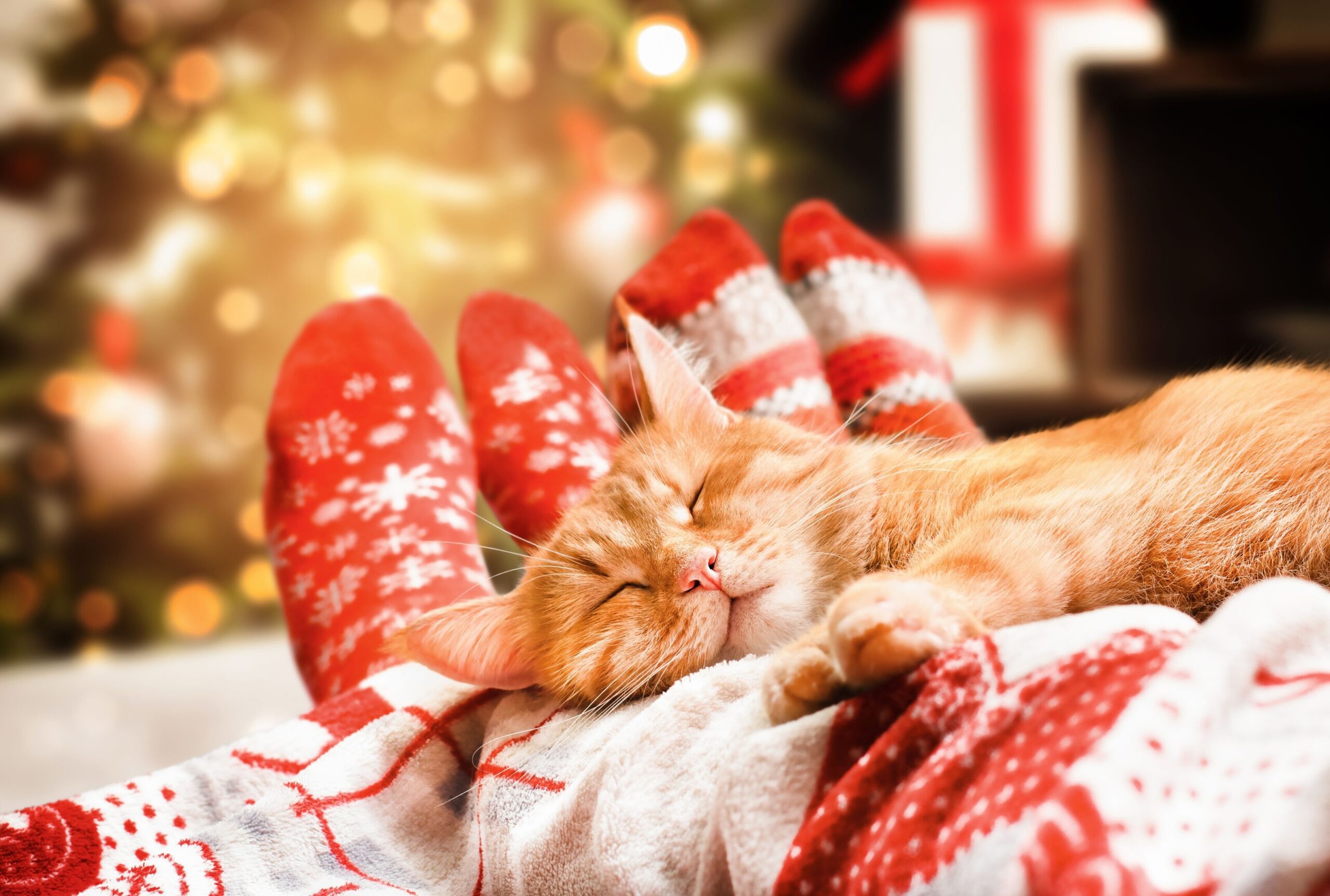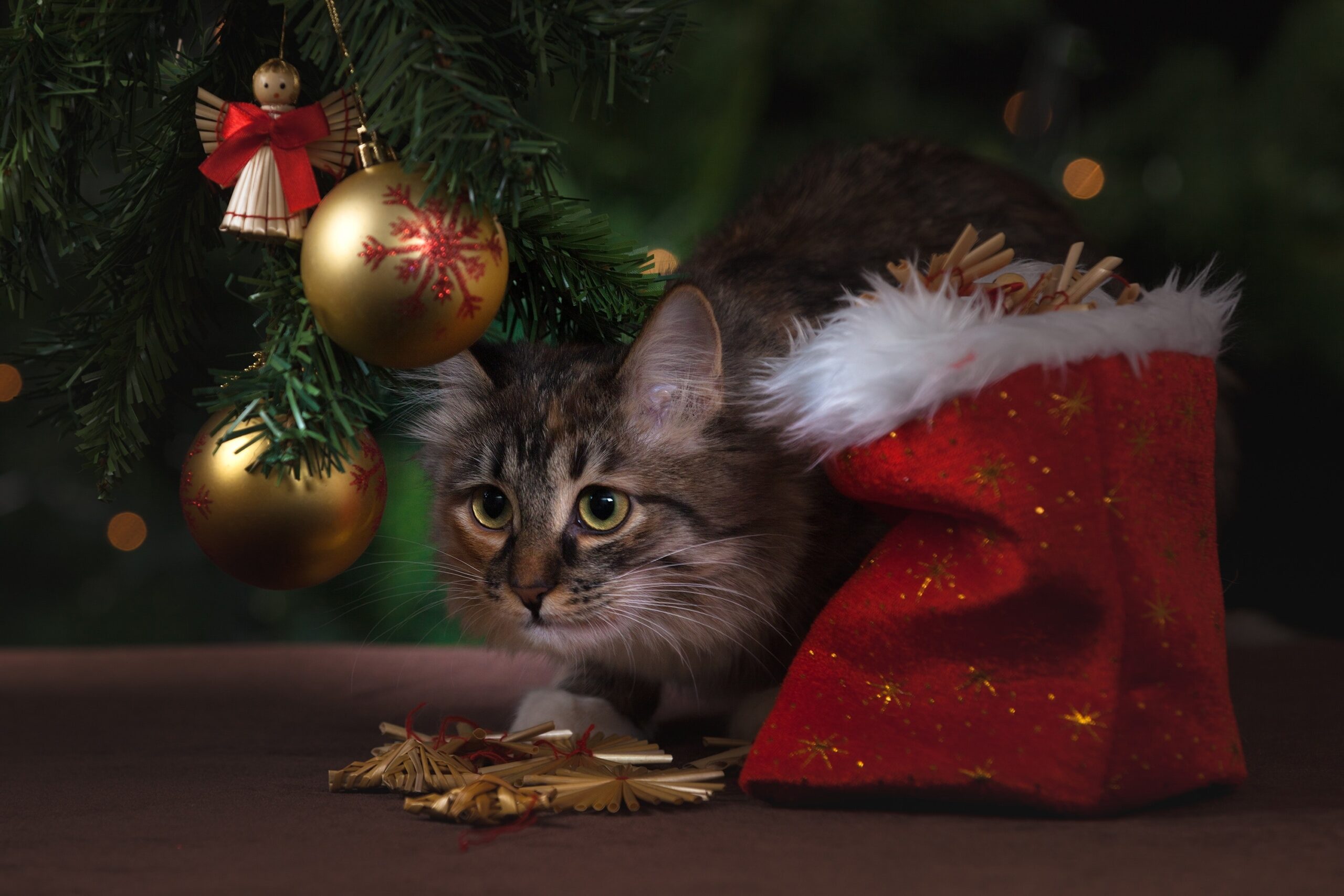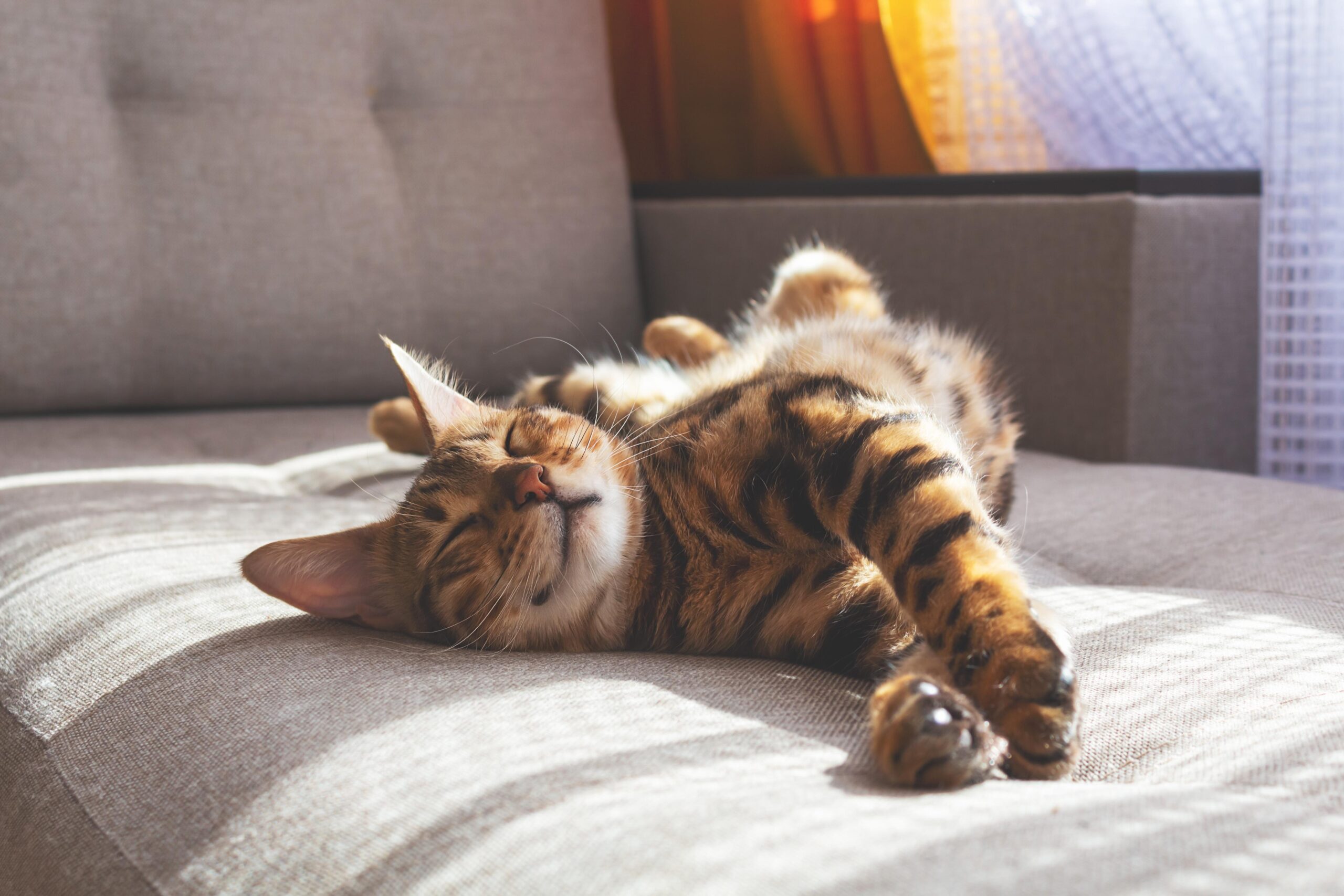Diwali guidance for cats
With Diwali fast approaching, many of us will be worrying about how our cats are going to cope. Studies suggest that between 46% and 75% of pets are frightened of Fireworks. This time of year can be very stressful for both owners and our animals.
In nature, loud noises are often a sign of danger, so cats have evolved to be afraid of them. Cats have a much better sense of hearing than us. Fireworks will be louder, and they will be able to hear them from much further away. Bright flashing lights can also upset your cat. It is disorienting and frightening for pets when they are unable to predict where the next noise will come from. This happens if many displays happen at the same time. As well as for Diwali celebrations, fireworks are also used in New Years and many wedding celebrations. This can also make it much harder to predict when they may go off. This can be particularly stressful for owners if your cat reacts badly to them. There are ways to help or even prevent this fear which we will cover below.
How to tell if your cat fears fireworks
Whether your cat will show a “fight or flight” response, and the extent to which they will be affected will depend on their personality and their past experiences. If your cat has reacted to fireworks in the past, or is reactive to other loud noises (e.g., thunderstorms, lorries, etc), it is highly likely they will show a reaction again.
They may react in different ways, including
- Seeming startled by noises and running away
- Toileting in the house
- Excessive grooming
- Hiding or becoming withdrawn
- Eating or drinking less than normal
- Nervous or fearful body language – for example, the pupils may be large/dilated, and the cat’s ears may be turned out to the side or back. (Cats that are tense will dart their ears around listening to the various sounds around them.)
- Pacing, circling or seeming restless
How to help – Before Diwali
If you have a new kitten, or a cat that has not experienced fireworks before, then it is a really good idea to introduce them to the sound of fireworks in a calm and controlled manner. The sooner you can start this training the better – ideally several months before as part of your kitten’s socialisation plan whilst they are between 2 and 8 weeks old. Ideally your breeder will have done this before you bring home your new kitten. It is also possible to do it once they are older too. There are many different desensitisation programs available online, but they all work in a similar way.
Top Tips
- Introduce the sounds when your cat is relaxed and calm. Your cat should barely be able to hear the sounds at first and shouldn’t react beyond an initial ear twitch. Initially sessions should be kept to one or two minutes. Keep the volume at the same level for a few days. The aim is to build up to playing the sounds for five minutes at a time, several times each day.
- Increase the volume gradually once you are confident that your cat is not showing any reaction. Each increase in volume should only be slight. The volume should then be kept at that level for a few sessions. This will allow your cat to get used to it again. Continue to increase the volume over another few days until it is at a moderate level.
- Introduce a toy or treats. Once your cat is happy listening to the sounds, you can give them a toy or a treat as soon as you start the recording playing. This will help them to associate the noise of fireworks with a treat
- Keep going with the above steps until your cat is confident listening to the recording at a fairly loud volume. This can take weeks to months depending on the cat, but it is important to take your time and not try to hurry the process. If your cat starts to seem concerned by the noise, or stops eating/playing to listen to it, then reduce the volume again to the level they were previously happy with. Once they have had another few sessions at this level then you can try increasing the volume again.
In the lead up to Diwali, it is also important to ensure that all microchip details are up to date. Frightened cats may run away to try and hide. So, be sure to keep your pets safely inside and check that your house is secure.
How to prepare – During Diwali
If fireworks are likely to go off, it is advisable to keep cats indoors during the dark hours. For cats that spend most of their time outdoors, remember to plan with the availability of litter trays. It is also important to check that your cat is passing urine and faeces as normal in these circumstances, as outdoor cats kept indoors can cause further stress.
Provide a calm and safe space for them to hide in. It’s a good idea to provide plenty of hiding spots for cats to choose between. Trying to control where they hide will cause more stress, so do not confine them to one room. Allow them to choose where they feel the safest, perhaps placing several cardboard boxes with blankets in around quiet areas of your home. If your cat prefers to hide under the bed, for example, leave them be.
Once it goes dark, close windows and curtains, and play the radio or TV. These will help to muffle the noise and lights of fireworks. If you're going to play music loudly, then make sure it's music that your cat is familiar with and has heard you play before.
Try and stay as calm as possible and avoid reacting to the noises yourself. Cat's will pick up if you are feeling anxious and stressed, and this may worsen their reaction. Give your cat comfort if they come to you for reassurance, and never punish your pet when or if they become scared
Calming Aids
There are many complimentary calming aids available for cats such as:
- Feliway diffusers and sprays release a calming pheromone to help relax and calm your cat. Remember to use the diffusers in an area they spend most time in and away from radiators. Use sprays on bedding or scratching towers where they spend their time.
- Zylkene and Yucalm are good examples of natural calming agents. These are given by mouth or in food daily and can be used alone, or with another modes of calming such as Feliway.
- There are also hugging vests such as Thundershirts. These wearable vests give your pet the feeling of a comforting hug, like swaddling an infant. The shirt applies gentle and constant pressure to calm all types of anxiety, fear and over-excitement issues.
What if my cat already has noise anxiety / fireworks issues?
Further help may be required from a veterinary professional or a behaviourist if your cat still reacts badly to the fireworks. It is always better to prepare for fireworks as early as possible. It may be worth looking into noise desensitisation training with them straightaway, with the hope that they will be more relaxed next year. Although fireworks can be a source of fear and distress for a lot of cats, with planning and training, it is possible to improve things for most pets.





